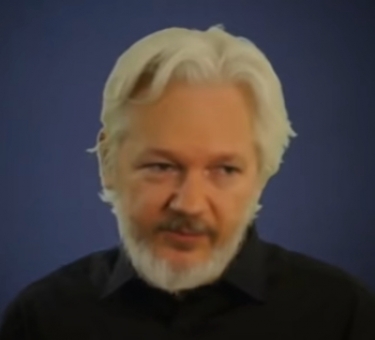In an op-ed published in The Age and the Sydney Morning Herald on Wednesday, Carr, who also served as foreign minister under Julia Gillard, said Australia had done enough for the US to have its request for Assange's freedom taken seriously.
Assange is being held at the UK's Belmarsh maximum security jail as he awaits the outcome of a second appeal to the High Court against a British extradition order.
In June, the Australian lost his first appeal against the order that aims to send him to the US for trial over alleged espionage charges.
|
|
Carr said Albanese had made his position clear to the US administration by saying: “We are working through diplomatic channels, but we’re making very clear what our position is on Mr Assange’s case.”
It was, thus, safe to assume that Albanese had, during one of his seven meetings with US President Joe Biden, raised the issue of Assange's freedom, Carr reasoned, adding that Australia had promised the largest transfer of wealth — $368 billion — to serve as a subsidy to American naval shipyards and the British naval builder BAE Systems.
"...it clinches Australia’s reputation as a deliriously loyal, entirely gullible US ally," Carr said. "It gives President Biden the justification for telling Republicans or Clinton loyalists in his own party that he had no alternative but to end the pursuit of Assange. 'Those Aussies insisted on it. They’re doing us all these favours … we can’t say no'.”
He said Biden could also cite other Australian moves made to provide a military stronghold to help American regional dominance, while lessening Australia's own security.
Assange faces criminal charges for publishing classified information that was leaked to WikiLeaks by an American soldier, then known as Bradley Manning, but now, after gender reassignment surgery, known as Chelsea Manning.
Carr said the words he was citing were not his, but rather those of Sam Roggeveen of the Lowy Institute in an article for Australian Foreign Affairs.
He cited Roggeveen also writing, "we’ve [Australia] also agreed to host four US nuclear subs on our west coast at something to be called 'Submarine Rotational Force-West'. Their mission would be destroying Chinese warships or enforcing a blockade of Chinese ports," Carr noted.
"The east coast submarine base, planned most likely for Port Kembla, will also directly support US military operations. It’s another nuclear target. As Roggeveen says, all these locations raise Australia’s profile in the eyes of the Chinese military planners designing their response in the event of war with the US."
Carr said with all these concessions, it was difficult to believe that Biden was not on the verge of acceding to Albanese's request to free Assange, adding that an initial refusal only meant the Australian PM had to ask a second time.
"I don’t believe the president can shake his head and say, 'nope', given all we have gifted – the potent symbolism of B52s, nuclear subs and bases on the east and west coast. It would look like we have sunk into the role of US territory, as much a dependency as Guam or Puerto Rico," Carr said.
"If Assange walks out the gates of Belmarsh into the arms of his wife and children, it will show we are worth a crumb or two off the table of the imperium. If it’s a van to the airport, then making ourselves a more likely target has conferred no standing at all. We are a client state, almost officially."
Assange was arrested by British police on 11 April 2019 and removed from the Ecuador embassy where he had taken refuge. His asylum was withdrawn shortly before he was arrested and he appeared in court soon after. The US made a formal request for his extradition on 6 June 2019.
The Australian, 52, is one of the better known hackers Australia has produced.











































